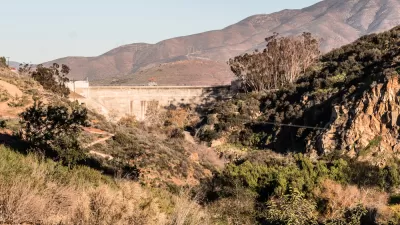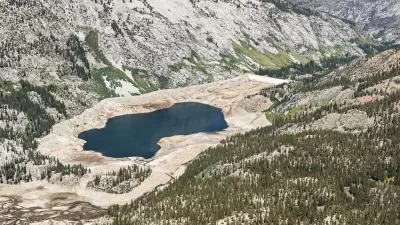A growing population and drought across the West is leading some experts to call for changes in the way governments and utilities charge for water. The difference between the way Tucson and Phoenix, for instance charge for water, is striking.
Jamie Killin explores the price of water in Arizona, where academics and advocates are calling for governments and utilities to raise the price of water to better reflect growing scarcity and to encourage conservation.
"In general, local governments and utilities price water according to the cost it takes to treat it and build and maintain the infrastructure necessary to transport it. Most water departments and water utilities run as enterprise funds that are required to recover only the costs they incur," writes Killin.
Other cities "have adopted a block pricing structure, which charges lighter water users, consuming what they need to live and maintain their homes, at a lower rate while charging heavier water users higher rates beyond a base tier."
As an example of the latter, "Tucson has one of the most steeply blocked pricing structures in the state. The owner of a single-family home will pay $1.29 per 100 cubic feet of water – 748 gallons – up to a level Tucson Water says covers the usage of most households. The highest of the four pricing blocks is $11.04 per 100 cubic feet for the heaviest water users."
Water costs in Phoenix, however, are the eighth lowest on a list of 30 U.S. cities, according to a Circle of Blue study cited by Killin.
Even under the current regime, the price of water is likely to increase, as municipalities and utilities search for the supply to maintain growing population levels, according to a recent report by the Arizona Department of Water Resources.
FULL STORY: Could price be a tool for encouraging water conservation in Arizona?

Maui's Vacation Rental Debate Turns Ugly
Verbal attacks, misinformation campaigns and fistfights plague a high-stakes debate to convert thousands of vacation rentals into long-term housing.

Planetizen Federal Action Tracker
A weekly monitor of how Trump’s orders and actions are impacting planners and planning in America.

In Urban Planning, AI Prompting Could be the New Design Thinking
Creativity has long been key to great urban design. What if we see AI as our new creative partner?

King County Supportive Housing Program Offers Hope for Unhoused Residents
The county is taking a ‘Housing First’ approach that prioritizes getting people into housing, then offering wraparound supportive services.

Researchers Use AI to Get Clearer Picture of US Housing
Analysts are using artificial intelligence to supercharge their research by allowing them to comb through data faster. Though these AI tools can be error prone, they save time and housing researchers are optimistic about the future.

Making Shared Micromobility More Inclusive
Cities and shared mobility system operators can do more to include people with disabilities in planning and operations, per a new report.
Urban Design for Planners 1: Software Tools
This six-course series explores essential urban design concepts using open source software and equips planners with the tools they need to participate fully in the urban design process.
Planning for Universal Design
Learn the tools for implementing Universal Design in planning regulations.
planning NEXT
Appalachian Highlands Housing Partners
Mpact (founded as Rail~Volution)
City of Camden Redevelopment Agency
City of Astoria
City of Portland
City of Laramie





























